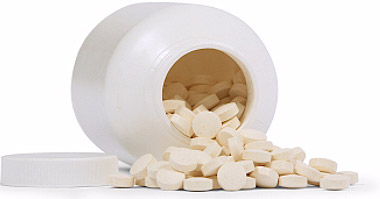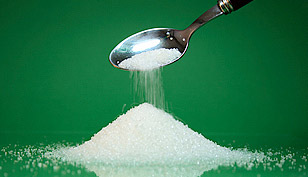IS CREATINE SAFE TO USE?

Creatine monohydrate is a hugely popular natural bodybuilding supplement and is used by many serious lifters in their quest for increased muscle size and strength.
Creatine increases your muscular power and overall gym performance, volumizes muscle cells, helps you retain more muscle during a cutting phase and also has several specific health benefits as well.
But is creatine safe to use?
As with many topics in the world of bodybuilding and fitness, creatine supplementation is surrounded by plenty of myths and misguided information in regards to its safety.
This is perpetuated by those who simply don’t know what they’re talking about or who have a hidden agenda to sell you some other “superior” product.
Let’s take a look at 5 of the main supposed “drawbacks” of creatine use, and why they are simply misguided…
Is Creatine Safe To Use? 5 Myths Shattered

Creatine Safety Myth #1: Creatine is a steroid.
Reality: Steroids are synthetic variations of the male hormone, testosterone. Steroids are illegal, banned substances and have extremely powerful effects on muscle growth, fat loss and recovery.
Creatine, on the other hand, is a 100% legal compound and is simply a combination of 3 amino acids: l-glycine, l-arginine and l-methionine. It is not a banned substance and has been sold over the counter ever since its release back in the mid 1990’s.
To suggest that steroids and creatine are even remotely similar is downright ridiculous.
Creatine Safety Myth #2: Creatine is stressful to the kidneys and liver.
Reality: Creatine is backed by more solid research than any other sports supplement in history, and all reliable studies have reached the same conclusion: creatine usage is both safe and effective in the short and long term when used within the recommended 3-5 gram per day dosage.
No adverse effects on the kidneys, liver or any other area of the body have ever been demonstrated as a result of creatine use.
Creatine Safety Myth #3: Creatine causes muscle cramping.
Reality: This is what is known as a “post hoc fallacy”, where a bodybuilder or athlete will experience a muscle cramp and then illogically point the finger at creatine.
Sure, bodybuilders may experience a muscle cramp from time to time, and most of those bodybuilders will also be supplementing with creatine. However, it does not then follow that creatine is the cause of those cramps.
In fact, it appears that the opposite is true. A very large study involving 1500 participants (Dalbo, Roberts, and Kersick)actually showed that those supplementing with creatine had less instances of muscle cramping than those who were not using it.
Creatine Safety Myth #4: Creatine causes upset stomach.
Reality: The only time where creatine use may cause stomach issues is when a much larger than normal dosage is used, such as 15 grams or more.
As long as you stay within the recommended 3-5 gram serving size (about a teaspoon) you are not going to experience any issues with this.
Creatine Safety Myth #5: Creatine causes bloating.
Reality: Creatine requires additional water in order to be stored in your muscles, and when supplementing with creatine you will experience an overall increase in muscular water retention.
However, this water retention is entirely intra-cellular, meaning that it is stored directly inside of the muscle cell itself. “Bloating” is caused by subcutaneous water retention (directly beneath the skin), and creatine does not cause this.
Is Creatine Safe To Use? The Bottom Line

The simple reality on this issue is that creatine is both safe and highly effective in the short and long term.
This has been confirmed over and over again by piles of research, and no evidence suggests that creatine is dangerous or harmful to human health in any way.
Just make sure to stick with a high quality, CreaPure™ creatine monohydrate powder (as opposed to cheaper alternatives from China) and stay within the recommended 3-5 gram per day dosage.
As long as you do this, you’ll be able to naturally increase your muscular strength, power and fullness and without any adverse side effects.
If you found this article helpful, make sure to sign up for your FREE custom fitness plan below...




